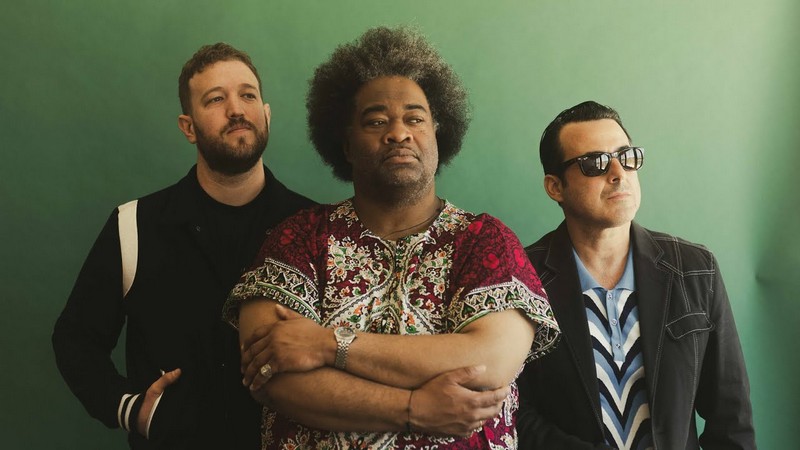 When Sam Jones’ documentary, Jason Isbell: Running With Our Eyes Closed, dropped earlier this year, music fans not only got an inside look into the making of the 2020 release from Jason Isbell and his band The 400 Unit, Reunions, but we also witnessed the tensions as the singer-songwriter struggled to get the words of his songs just right, how the recovering alcoholic coped with months confined at home during the pandemic as the musician was unable to play live with his band, and the tensions that developed in his relationship with his wife and artist in her own right, Amanda Shires. All in all, the peak into the inner life of one of the more-intriguing artists on the modern music front felt revelatory in that it revealed the process of self-examination and artful crafting that goes into creating music that is not just pleasing to the ears but is an honest and truthful reflection of the artist’s interaction with the reality we all are sharing in one way or another.
When Sam Jones’ documentary, Jason Isbell: Running With Our Eyes Closed, dropped earlier this year, music fans not only got an inside look into the making of the 2020 release from Jason Isbell and his band The 400 Unit, Reunions, but we also witnessed the tensions as the singer-songwriter struggled to get the words of his songs just right, how the recovering alcoholic coped with months confined at home during the pandemic as the musician was unable to play live with his band, and the tensions that developed in his relationship with his wife and artist in her own right, Amanda Shires. All in all, the peak into the inner life of one of the more-intriguing artists on the modern music front felt revelatory in that it revealed the process of self-examination and artful crafting that goes into creating music that is not just pleasing to the ears but is an honest and truthful reflection of the artist’s interaction with the reality we all are sharing in one way or another.
In nearly every way that matters, Weathervanes, Isbell’s eighth studio album, released nearly 10 years to the day from his breakout, “got sober” album, Southeastern, is a monument to artistic growth. Initially, it’s the songwriting that grabs your attention, the character driven storytelling, the crisp narratives where every word seems to add richness to the portrait of lives struggling to make sense, get by, survive. But quickly, the music pulls at your attention, the way the melodies add emotional nuance to the lyrics as they are sung, the way the band’s warm grooves roll over you, and the way the guitar solo, like the one in the sad, melancholy of “Middle of the Morning,” seems like an extension of Isbell’s singing voice, wordlessly carrying the rich emotional complexities as the strings cry out. By the time you’ve gotten to the final tracks of this 13-song collection, you’re caught up in the energy of a great band completely in sync, whether playing full out together or locked into a steady beat that allows the soloists room to soar.
Live with the record for a while and you begin to hear some of the musical influences that fuel Isbell’s creative imagination. In the first line of each couplet in the chorus of “King of Oklahoma,” he holds out the opening line in a bit of a howl that somehow recalls the way Mark Farner sang the opening lines on the Grand Funk Railroad classic, “I’m Your Captain.” “If You Insist,” a charming narrative about a failed pick-up, seems to hearken back to Dire Straits in the shuffle rhythm and way the organ swells, and the guitars have a restrained Mark Knopfler feel. Again and again, The 400 Unit supports Isbell’s vision in ways that recall Petty’s give and take with The Heartbreakers, they can rock with authority when called for, but know when to lay low and let the vocal and the story shine through.
But then those two closing tracks seem to throw caution to the wind and pull out all the stops. “This Ain’t It” echoes the best of Southern Rock, built on a solid blues/rock foundation, a catchy vocal hook as spunky as Skynyrd, but then the twin guitar attack of Sadler Vaden and Isbell, recalling the rich melodic tones of Duane Allman and Dickie Betts, much as they did on their cover of “In Memory of Elizabeth Reed, for their tribute to the music of the state, 2021’s tribute, Georgia Blue, which was their go-to encore at shows in early 2022. And the 7-minute jam that is “Miles” kicks off, hanging on a hard rockin’ guitar riff like something Neil Young would play Crazy Horse, with hints of The Beatles in some George Harrison-styled slide guitar and some late Abbey Road guitar tones and vocal harmonies.
What’s so cool about all these classic references, whether they’re intentional or not, is the way Isbell and his long-time band of Muscle Shoals musicians are able to nod to some of rock music’s great sounds without sacrificing their own identity. This many albums in, they’ve refined their own signature vibe to the point that these moments feel like a shared appreciation of this great, expanding rock & roll tradition, that they are glad to be a part of. In addition to Vaden and Isbell’s guitars, there’s Derry DeBorja on keyboards, and the rhythm section of Jimbo Hart on bass, and Chad Gamble on drums. Oh, and of course, Isbell’s wife Shires, whose album, Take It Like a Man, was a solid contender last year. Very likely she’s the “Strawberry Woman,” the album’s one distinct love song.
But eventually, as it has been with Isbell’s previous albums, it ultimately comes down to the songs, and in significant ways, Weathervanes broadens the songwriter’s scope, takes in a bigger picture even as he burrows deep into the lives of his stories’ characters. “Death Wish” captures the challenge of trying to love someone living with depression, but still gets at a universal truth, that “Everybody dies, but you gotta find a reason to carry on,” meanwhile “King of Oklahoma” describes the downward spiral of addiction and the losses that follow. “Cast Iron Skillet” reveals the shallow falsehoods passed off as cliches in a world that hides racist hatred that’s more powerful than a parents love for their own child. “Save the World” is another slogan that people say when they’re running for office, but that doesn’t ease the fear of every parent who’s afraid for the safety of their children in a world where gun violence is the number one killer threatening their well-being and random shootings are happening at schools, in grocery stores, when someone knocks on the wrong door. Somewhere in each of these songs, Isbell finds a personal connection, they all come from some hope, some fear, some longing for peace and sense. In “Middle of the Morning,” he’s the “strong and silent Southern man,” who scares his partner, so he sits on the tailgate of his truck “like a farmhand’s ghost,” who realizes he’s mourning because “I’ve been crying this whole time.”
Jason Isbell’s songwriting has grown and evolved here, just as his music and the work of his band feels more expansive, larger, creating anthems for a world that’s out of control, but that makes more sense when we’re in the groove together. These songs lift up commonly experienced truths, they acknowledge the fragile hold that binds us together, offering the healing of redemption in an appreciation for our shared humanity, and some music that lifts our spirits, points us toward hope for a better day. Weathervanes, like the albums that have come before it, by taking seriously the honest uncertainty that lives within each of us, creates a place where real connection is possible, and like the best blues and rock & roll music has always done, sets us free against all odds to celebrate all that is life-giving, joyful and worthwhile in our lives.
Brian Q. Newcomb
For more of Brian Q. Newcomb’s music reviews, check out The Fire Note
Other reviews you might enjoy:
- Live from the Ryman (Jason Isbell & the 400 Unit) – music review
- To the Sunset (Amanda Shires) – music review
- Back to the Hive (Jay Gonzalez) – music review

The Fire Note started to create a simple place that could showcase records that we liked. Nothing more, nothing less. The focus has always been about the album and the experience that a great record creates. The Fire Note Webzine builds on this idea by offering an array of content that is all about the enjoyment of music, its pulse and energizing attitude.





